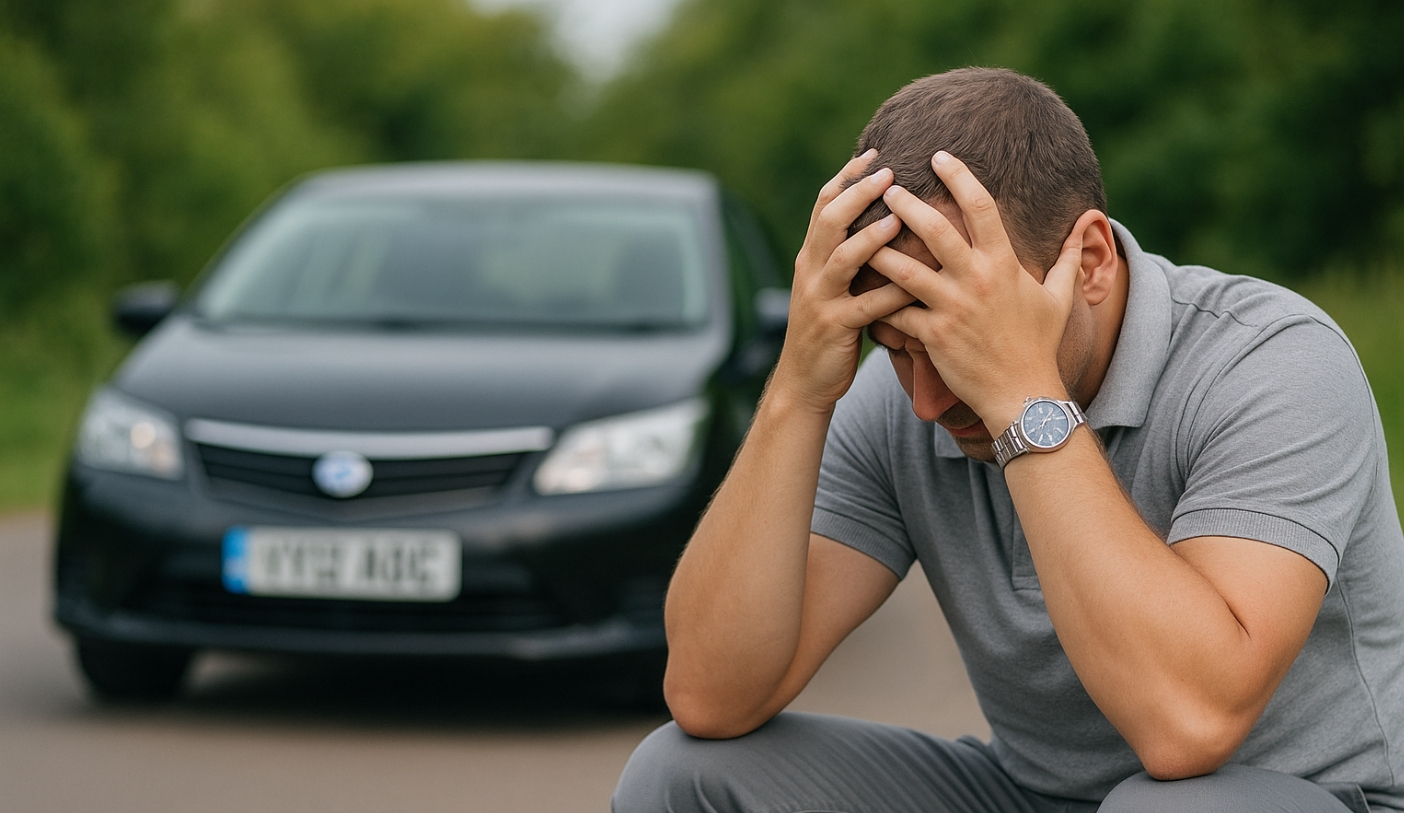https://www.jthughes.co.uk/Blog/View/Before-You-Buy-That-Used-Car-Read-This-or-Risk-Regret-Later/12855
Before You Buy That Used Car—Read This or Risk Regret Later

The 9 Checks That Can Save You Thousands and a World of Headaches
Buying a used car is often the smart choice—but only if you know what to look for.
According to the RAC research, over half of used vehicles checked have a hidden history—ranging from outstanding finance to write-offs or mileage fraud. The wrong choice could turn your bargain into a financial nightmare.
To help you buy with confidence, our manufacturer-trained JT Hughes technicians have outlined the 9 most important checks every buyer should make—whether you’re buying privately or from a dealer.
Table of Contents
-
1. Run a Full Vehicle History Check
-
2. Review the MOT and Service History
-
3. Inspect the Car in Daylight
-
4. Test Drive with Intention
-
5. Match the Paperwork
-
6. Private Seller or Trusted Dealer?
-
7. Be Scam-Aware
-
8. Inspect the Interior
-
9. Buying an EV or Hybrid? Do These Extra Checks
-
Summary: Used Car Buyer’s Checklist
-
Frequently Asked Questions
-
Final Thoughts
1. Run a Full Vehicle History Check
Use services like HPI Check or Experian AutoCheck to uncover:
Always run these checks before you view the vehicle.
2. Review the MOT and Service History
The MOT tells a story—read between the lines.
Watch for:
Use the free MOT checker at Gov.uk for instant access.
3. Inspect the Car in Daylight
Don’t trust appearances. Check carefully for:
-
Rust around wheel arches and sills
-
Mismatched paint or uneven panel gaps (signs of crash repair)
-
Bumpy bodywork (filler or poor repairs)
-
Cloudy or cracked headlight covers
-
Uneven tyre wear
Tip: Avoid viewing in poor lighting or rain—flaws hide well when it’s dark or wet.
4. Test Drive with Intention
Don’t just drive it. Test it.
What to look for:
-
Smooth, quiet start-up
-
Straight, stable steering
-
Smooth clutch and gear changes
-
No vibrations under braking
-
No rattles over bumps
Use a mix of road types if you can.
5. Match the Paperwork
Before you commit, verify everything:
-
V5C logbook (registration, VIN, and keeper details must match)
-
MOT certificates and mileage records
-
Service records with stamps or receipts
-
Major service items (like timing belt replacement)
If anything is missing or inconsistent, slow down—or walk away.
6. Private Seller or Trusted Dealer?
Private sales may come cheaper—but without protection.
Buying from a reputable dealer like JT Hughes means:
-
Independent mechanical inspections
-
Legal history verification
-
Optional warranty and service plans
-
Manufacturer-trained experts to guide you
The safest used car is one that’s already been checked by someone who knows exactly what to look for.
7. Be Scam-Aware
Here’s what to watch out for:
-
Clocking: Mileage turned back to raise the sale price
-
Cloning: False registration plates on stolen vehicles
-
Cut-and-shuts: Cars rebuilt from multiple write-offs (often unsafe)
Always check VINs across the vehicle (door sill, windscreen, engine bay) and compare against the V5C.
8. Inspect the Interior
The inside often tells a more honest story than the seller.
Check for:
-
Wear on pedals, seats, and steering wheel
-
Malfunctioning electronics (windows, lights, infotainment)
-
Musty smells that could mean water damage
Look, press, push, sniff—your senses are your best defense.
9. Buying an EV or Hybrid? Do These Extra Checks
-
Ask for a battery health report
-
Verify charging compatibility (cable types, ports)
-
Confirm Clean Air Zone compliance if you drive in restricted cities
EVs are rising in popularity—but their checks go deeper than fuel and filters.
Summary: Used Car Buyer’s Checklist
-
Review MOT and service records
-
Run an HPI/vehicle history check
-
Match V5C, VIN, and reg details
-
Walk around and inspect under good light
-
Take a test drive on mixed roads
-
Check for interior wear, smells, and working electronics
-
Watch for signs of fraud or tampering
-
Review all documents slowly
-
Prefer reputable dealers for peace of mind
Frequently Asked Questions
What paperwork should I ask for when buying a used car?
V5C logbook, full MOT record, service history, and receipts for recent work. Double-check VINs match in all locations.
Is it safer to buy from a dealer than a private seller?
Generally, yes. Dealers like JT Hughes offer multi-point inspections, legal checks, warranties, and service history validation.
What’s included in JT Hughes' used vehicle inspection?
A detailed mechanical check by manufacturer-trained technicians—covering brakes, suspension, tyres, electrics, emissions, and more.
What are the risks of not checking the car’s history?
You could buy a stolen, written-off, or finance-encumbered car—and lose both the car and your money.
How do I spot a clocked car?
Compare MOT mileage history with service records and interior wear (pedals, steering wheel, etc.).
What’s unique about buying an EV or hybrid second-hand?
You’ll want to check battery condition, charging setup, and Clean Air Zone compliance for cities like Birmingham or London.
Final Thoughts
You don’t have to be a mechanic to make a safe, smart choice.
You just need the right process—and a few trusted tools.
If you're not buying yet, save this guide or share it with someone who is.
And when you are ready? JT Hughes will be here—with inspected, road-ready vehicles backed by real people you can trust.